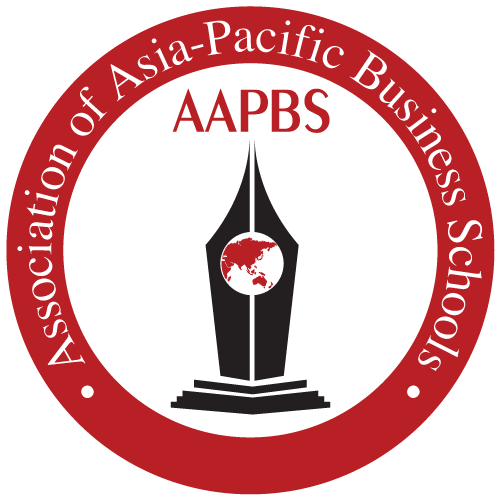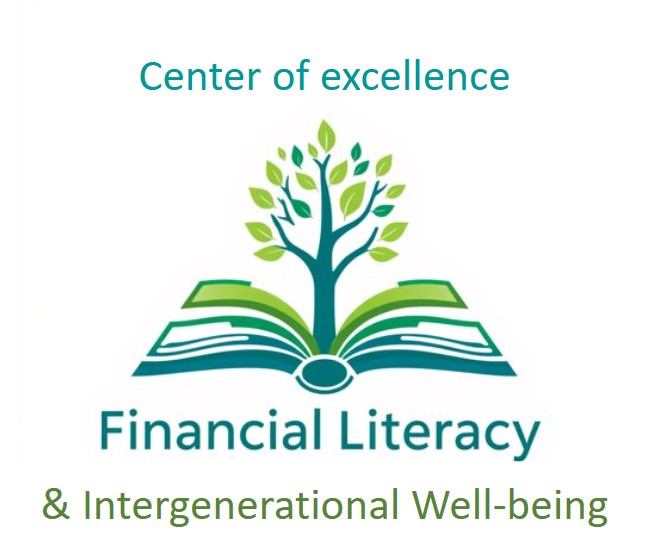The Influence of Innovative Behavior and Growth Mindset on Work Productivity with Job Flourishing as a Moderator
 Abstract Views:
556 times
Abstract Views:
556 times
 PDF Downloads:
285 times
PDF Downloads:
285 times
Abstract
Purpose: The study aims to examine the direct influence of innovative behavior, growth mindset, and job flourishing on work productivity, as well as the moderating impact of job flourishing on the influence of innovative behavior and the influence of growth mindset on work productivity.
Method: The research sample is employees who have worked productively. The study employs a structural equation modeling approach, utilizing a moderated regression analysis method with Smart PLS.
Results: The study's findings demonstrate that innovative behavior, a growth mindset, and job flourishing have a positive impact on work productivity. A flourishing job strengthens the influence of a growth mindset on work productivity. The implication is that to increase employee work productivity, the main strategy priority recommended by this study is to promote innovative behavior, the second priority is to implement a good growth mindset strategy, and the third priority is to adopt a strategy to enhance employee job flourishing. These three things are very effective in increasing work productivity. Another alternative to increase work productivity is to synergize strategies through collaboration with a growth mindset and job flourishing. Job flourishing can enhance the positive impact of a growth mindset on employee work productivity. By combining the growth mindset with job flourishing among employees, employee work productivity will also increase significantly.
Downloads
References
Aini, R., & Sudiarti, S. (2022). Implementation of Work Discipline and Work Productivity from an Islamic Economic Perspective. Innovative: Journal of Economics, Management, Accounting, Digital Business and Entrepreneurship, 1(2), 174–186. https://doi.org/https://doi.org/10.55983/inov.v1i2.112
Bagheri, A., Newman, A., & Eva, N. (2022). Entrepreneurial leadership of CEOs and employees' innovative behavior in high-technology new ventures. Journal of Small Business Management, 60(4), 805–827. https://doi.org/https://doi.org/10.1080/00472778.2020.1737094
Berg, J. M., Wrzesniewski, A., Grant, A. M., Kurkoski, J., & Welle, B. (2023). Getting unstuck: The effectsof growth mindsets about the self and job on happiness at work. Journal of Applied Psychology, 108(1), 152. https://doi.org/https://doi.org/10.1037/apl0001021
Burnette, J. L., Billingsley, J., Banks, G. C., Knouse, L. E., Hoyt, C. L., Pollack, J. M., & Simon, S. (2023). A systematic review and meta-analysis of growth mindset interventions: For whom, how, and why might such interventions work? Psychological Bulletin, 149(3–4), 174. https://doi.org/10.1037/bul0000368
Burnette, J. L., Billingsley, J., & Hoyt, C. L. (2022). Harnessing growth mindsets to help individuals flourish. Social and Personality Psychology Compass, 16(3), e12657. https://doi.org/https://doi.org/10.1111/spc3.12657
Cleven, A. J., Renaud, A., Larose-Pierre, M., McQuade, B., Griffin, B. L., Johnson, C., & Hughes, J. A. (2023). Associating growth mindset with emotional intelligence and why it's needed for professional identity formation. American Journal of Pharmaceutical Education, 87(6), 100110. https://doi.org/https://doi.org/10.1016/j.ajpe.2023.100110
Fadil, K., Suhendra, S., & Amran, A. (2023). Analysis of Education Policies of ASEAN Countries in Supporting Sustainable Developments Goals. Islam, 5(1), 279–295. https://doi.org/10.36088/islamika.v5i1.2778
García-Avilés, J.-A. (2021). Journalism innovation research, a diverse and flourishing field (2000- 2020). Information Professional, 30(1). https://doi.org/https://doi.org/10.3145/epi.2021.ene.10
Gáspár, K., Hunor Gergely, L., Jenei, B., Wikonkál, N., Kinyó, A., Szegedi, A., Remenyik, E., Kiss, N., Jin, X., & Sardy, M. (2022). Resource utilization, work productivity and costs in patients with hidradenitis suppurativa: a cost-of-illness study. Expert Review of Pharmacoeconomics & Outcomes Research, 22 (3), 399–408. https://doi.org/https://doi.org/10.1080/14737167.2021.1895753
Hadi, S., Putra, A. R., & Mardikaningsih, R. (2020). The influence of innovative behavior and work engagement on employee performance. Baruna Horizon Journal, 3(1), 186–197. https://doi.org/https://doi.org/10.52310/jbhorizon.v3i1.38
Hair, J., & Alamer, A. (2022). Partial Least Squares Structural Equation Modeling (PLS-SEM) in second language and education research: Guidelines using an applied example. Research Methods in Applied Linguistics, 1(3), 100027. https://doi.org/https://doi.org/10.1016/j.rmal.2022.100027
Hair, Jr., J. F., Hult, G. T. M., Ringle, C. M., Sarstedt, M., Danks, N. P., & Ray, S. (2021). Partial least squares structural equation modeling (PLS-SEM) using R: A workbook. Springer Nature. https://link.springer.com/referenceworkentry/10.1007/978-3-319-57413-4_15
Hidayati, D. R., & Imaningsih, N. (2022). The effect of government spending in the education, health, economic growth and poverty sectors on the human development index. Economic Forum: Journal of Economics, Management and Accounting, 24(4), 703–710. https://doi.org/https://doi.org/10.30872/jfor.v24i4.11875
Ho, H. C. Y., & Chan, Y. C. (2022). Flourishing in the workplace: A one-year prospective study on the effects of perceived organizational support and psychological capital. International Journal of Environmental Research and Public Health, 19(2), 922. https://doi.org/https://doi.org/10.3390/ijerph19020922
Hoyt, C. L., Burnette, J. L., Nash, E., Becker, W., & Billingsley, J. (2023). Growth mindsets of anxiety: Do the benefits to individual flourishing come with societal costs? The Journal of Positive Psychology, 18(3), 370–382. https://doi.org/https://doi.org/10.1080/17439760.2021.2006762
Hunsaker, W. D., & Ding, W. (2022). Workplace spirituality and innovative work behavior: the role of employee flourishing and workplace satisfaction. Employee Relations: The International Journal, 44(6), 1355–1371. https://doi.org/https://doi.org/10.1108/ER-01-2021-0032
Marques-Quinteiro, P., Graça, A. M., Coelho Jr., F. A., & Martins, D. (2021). On the relationship between authentic leadership, flourishing, and performance in healthcare teams: a job demands- resources perspective. Frontiers in Psychology, 12, 692433. https://doi.org/https://doi.org/10.3389/fpsyg.2021.692433
Montani, F., Sommovigo, V., Torres, C., Courcy, F., Ferreira, M. C., Mendonça, H., & Silva, A. J. (2022). When do innovators flourish? The role of interpersonal goals in the relationship between innovative work behavior and flourishing. Personality and Individual Differences, 199, 111833. https://doi.org/https://doi.org/10.1016/j.paid.2022.111833
Nagel, J. (2020). Improving Indonesia's Competitive Human Resources through Education in the Era of Digital Transformation and Sustainable Technology. Proceedings of the National Seminar on Applied Science and Technology, 1(1), 31–38.
Naim, M. F., & Ozyilmaz, A. (2023). Flourishing-at-work and turnover intentions: does trust in management moderate the relationship? Personnel Review, 52(7), 1878–1899. https://doi.org/https://doi.org/10.1108/PR-09-2020-0715
Rajala, A., & Tidström, A. (2022). Examining the effects of a coopetitive mindset on SME performance: The moderating role of growth. Industrial Marketing Management, 105, 351–358. https://doi.org/https://doi.org/10.1016/j.indmarman.2022.06.012
Rosa, E. M., & Fauzan, A. (2023). A Bibliometric Analysis: Improving Nurse Perfomance with Flourishing (Literature Review). International Conference on Learning and Advanced Education (ICOLAE 2022), 673–680. https://doi.org/10.2991/978-2-38476-086-2_58
Sagbas, M., Oktaysoy, O., Topcuoglu, E., Kaygin, E., & Erdogan, F. A. (2023). The mediating role of innovative behavior on the effect of digital leadership on intrapreneurship intention and job performance. Behavioral Sciences, 13(10), 874. https://doi.org/https://doi.org/10.3390/bs13100874
Shahi, B. J., Dahal, R. K., & Sharma, B. B. (2022). Flourishing organisational citizenship behaviour through job characteristics. Journal of Business and Social Sciences Research, 7(2), 29–46. https://doi.org/https://doi.org/10.3126/jbssr.v7i2.51490
Sitorus, R. R., & Tambun, S. (2023). Smart PLS Application Training for Accounting Research for the Indonesian Institute of Accountants (IAI) North Sumatra Region. Journal of UNDIKMA Service, 4(1), 18–26. https://doi.org/https://doi.org/10.33394/jpu.v4i1.6624
Tambun, S. (2021). Improving the Ability to Conduct Qualitative Research Using NVivo 12 PLus Software at the LAN Center for Training and Development and the Study of Decentralization and Regional Autonomy in Samarinda. Journal of Nusantara Empowerment, 1(2), 1–9. https://journal.uta45jakarta.ac.id/index.php/JPN/article/view/5655
Tambun, S., Heryanto, H., Mulyadi, M., Sitorus, R. R., & Putra, R. R. (2022a). SmartPLS Data Processing Application Training to Improve Research Skills for Lecturers of Batam Theological College. Journal of Undikma Service, 3(2), 233–240. https://doi.org/10.33394/jpu.v3i2.5519
Tambun, S., Sitorus, R. R., Heryanto, H., & Sitorus, H. (2022b). Capacity Building of Lecturers in Batam: Research Data Processing Training with Amos Software. Reswara: Journal of Community Service, 3(2), 818–825. https://doi.org/https://doi.org/10.46576/rjpkm.v3i2.2061
Umalihayati, U., Dayurni, P., & Hidayat, M. (2023). Assistance in understanding human capital investment encourages quality development through education. Scientific Journal of Community Service, 2(2), 89–95. https://doi.org/https://doi.org/10.55883/jipam.v2i2.54
Vancouver, J. B., Ballard, T., & Neal, A. (2022). Goal-Setting: Revisiting Locke and Latham's Goal-Setting Studies. Sage Publications.
Zhao, H., Zhang, J., Heng, S., & Qi, C. (2021). Team growth mindset and team scientific creativity of college students: The role of team achievement goal orientation and leader behavioral feedback. Thinking Skills and Creativity, 42, 100957. https://doi.org/https://doi.org/10.1016/j.tsc.2021.100957
Zhao, L., Liu, P., Zhang, F., Xu, S., & Liu, Y. (2022). How does perceived respect affect innovative behavior? The role of thriving at work and spiritual leadership. Frontiers in Psychology, 13, 978042. https://doi.org/https://doi.org/10.3389/fpsyg.2022.978042

This work is licensed under a Creative Commons Attribution 4.0 International License.
Articles published in Journal of Entrepreneurship & Business are licensed under a Creative Commons Attribution 4.0 International (CC BY) license. You are free to copy, transform, or redistribute articles for any lawful purpose in any medium, provided you give appropriate credit to the original author(s) and the journal, link to the license, and indicate if changes were made.
Authors submitting to this journal agree to make their work freely available under the CC BY 4.0 license, ensuring broad dissemination and reuse. The full license details can be accessed at https://creativecommons.org/licenses/by/4.0/.
This ensures that they receive the maximum dissemination because there are no barriers to access. This license allows readers to disseminate and reuse the paper, but always requires them to grant the authors and the first publication full credit.
While JEB upholds ethical publishing standards, the responsibility for ensuring originality and compliance with copyright regulations lies with the authors. The journal is not liable for any legal claims related to the content of published articles.
For further inquiries, please contact the editorial team.

 DOI:
DOI:











